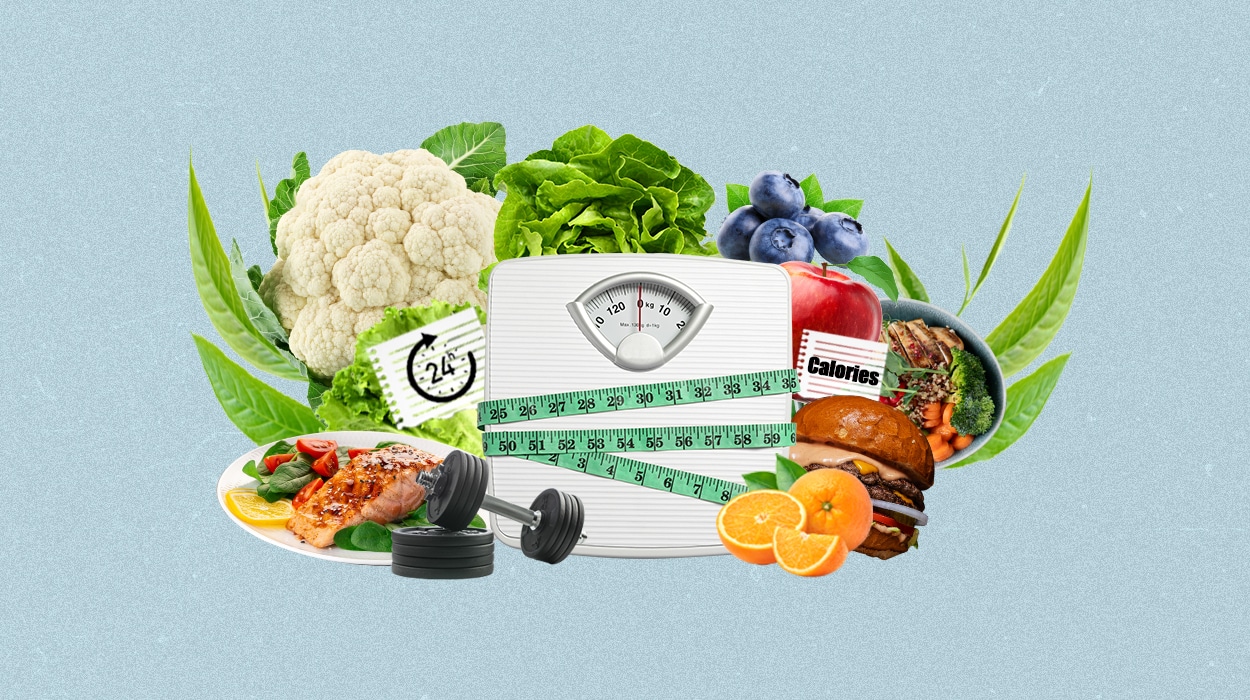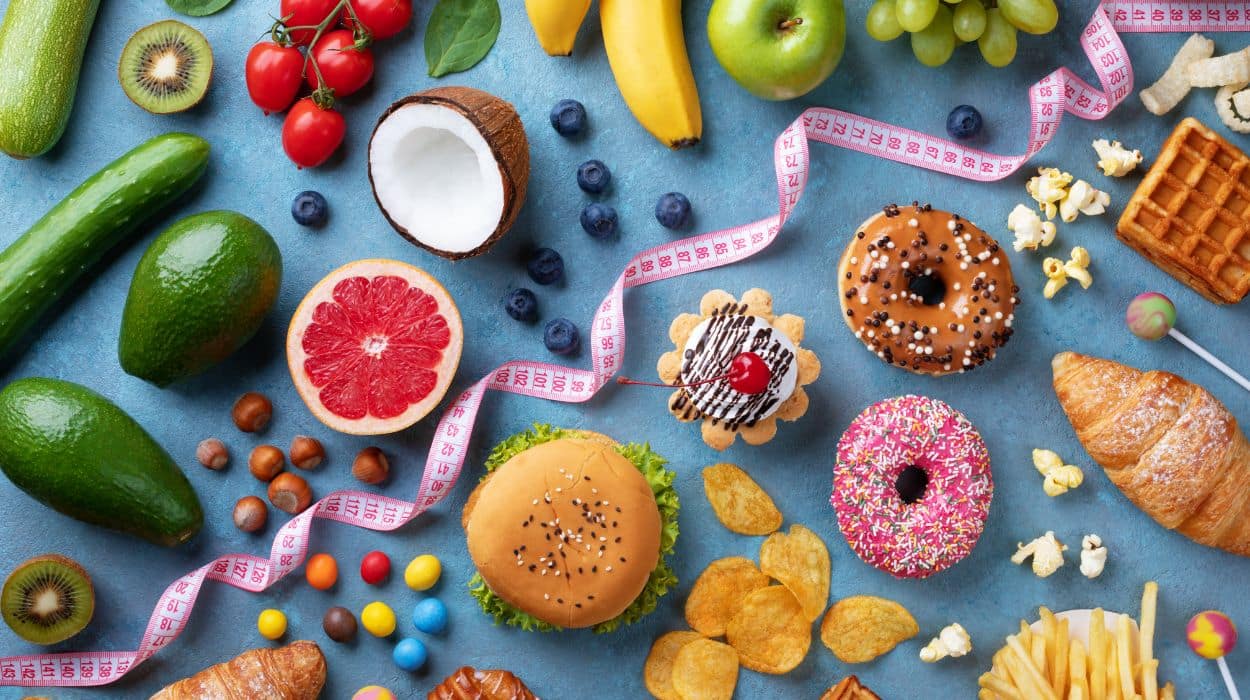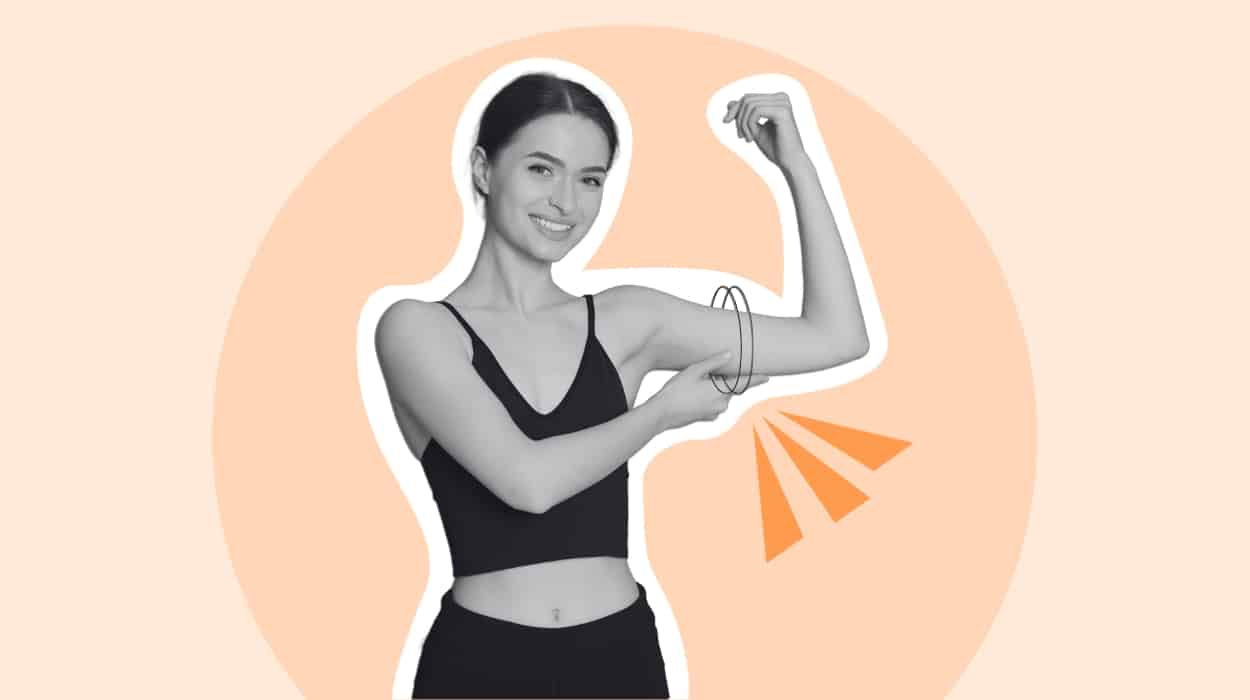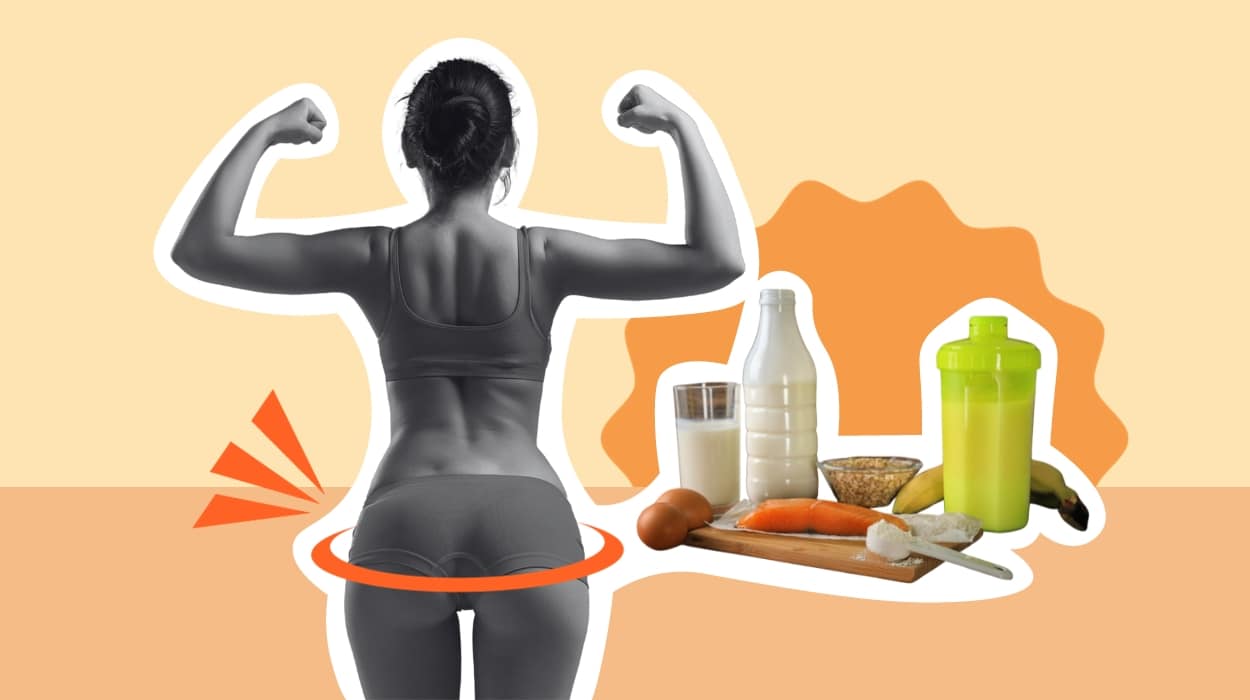How Many Calories Should I Eat A Day? Weight Loss Calculator 2024

Doctors and scientists continuously work on determining an individual’s ideal calorie intake. They’re fine-tuning discoveries concerning how many calories are in our food, how many calories our bodies consume, and how to calculate your estimated calorie requirements.
This article will cover the most recent dietary guidelines for Americans and help you figure out exactly how many calories you should eat in a day.
How Many Calories Should I Eat A Day?
- Adults: The general recommended calorie intake for women is 2000 calories, and for men, it’s 2500 calories.
- Teens: Boys need 2,800 calories daily, and girls require 2200 calories daily.
- Children: Children aged 1-3 need 900-1000 calories per day. Girls aged 4 to 13 need 1200-1600 calories, and boys need 2400-1800.
How Many Calories Should You Eat To Lose Weight?
If you’re trying to lose weight, you may have noticed that the “calories in, calories out” model sometimes doesn’t seem to work. It does work,[1] but people have challenges for two reasons:
- More calories are sneaking into your food than you realize.
- The number of calories your body burns daily might be lower than you thought.
Below, we’ll walk through a calorie calculator to help you determine your BMR. But first, let’s talk about your daily calorie needs.
Adults

How many calories should you eat? A quick internet search can help you make a calculation based on your body mass index (BMI), but you’re always better off working with a registered dietitian. The general recommended calorie intake for women is 2000 calories, and for men, it’s 2500 calories. But everyone has different needs, and these numbers aren’t right for everyone.
Teens
The teenage years are the most nutritionally demanding time in a person’s life. Boys and girls start getting hungry in early puberty.
On average, boys need 2,800 calories daily, and girls require 2200 calories daily. Teenagers must get not only enough calories but also enough vitamins and minerals. Missing out on important nutrients while trying to lose weight can lead to lifelong complications[2] with their bones and brains. Dieting is not recommended in adolescents unless advised by a doctor.
Children
Children aged 1-3 need 900-1000 calories per day. Girls aged 4 to 13 need 1200-1600 calories, and boys need 2400-1800.
Restricting calories is not recommended for children and should not happen without careful supervision. Kids need surplus calories to grow. Not eating enough can lead to stunted growth and nutritional deficiencies.
Using Weight Loss Calculators
Calorie Calculator
The Calorie Calculator can be used to estimate the number of calories a person needs to consume each day. This calculator can also provide some simple guidelines for gaining or losing weight.
- Exercise: 15-30 minutes of elevated heart rate activity.
- Intense exercise: 45-120 minutes of elevated heart rate activity.
- Very intense exercise: 2+ hours of elevated heart rate activity.
Food Energy Converter
The following converter can be used to convert between Calories and other common food energy units.
How To Use This Calculator
The best way to approach your calorie needs is by comparing your calories consumed with your calories burned. A calorie surplus will result in gaining weight. A calorie deficit will result in weight loss.
This calculator is designed for informational purposes. Always consult with your healthcare provider before dramatically adjusting your daily calorie intake.
You can calculate calories in two steps:
Determine Your Basal Metabolic Rate (BMR)
Personal trainers widely use the Mifflin-St Jeor equation. It’s different for men and women. You have to use kilograms for weight and centimeters for height.
Here’s the equation for men:
- (10 x weight) + (6.25 x height) – (5 x age) + 5 = BMR
The women’s equation looks similar:
- (10 x weight) + (6.25 x height) – (5 x age) – 161 = BMR
Estimate total daily Expenditure (TDEE)
Once you have calculated your BMR, multiply it by the appropriate Match-McArdle multipliers:
- Sedentary (no exercise + desk job) = 1.2
- Lightly Active (light exercise 1-3 days/ week) = 1.375
- Moderately Active (moderate exercise 3-5 days/week) = 1.55
- Very Active (heavy exercise 6-7 days/week) = 1.725
- Extremely active (exercise 2 x day) = 1.9
The resulting value is how many calories you need each day. If you’re no math whiz, that’s okay!
What Are Calories?
The calorie (or kcal) is the unit of measurement we use to calculate the amount of energy food provides. One kcal is the energy you need to heat one kilogram of water by one degree Celsius.
Calories: Different Kinds and Their Effects

The primary sources of calories in the typical human diet are carbs, protein, and fat. Alcohol can be a significant additional source for many people. These four food categories are called macronutrients (or “macros“). Though there is no correlation between nutritional benefits and the number of calories, each macronutrient provides a set number of calories per gram:
- Carbohydrates provide four calories per gram Examples of carbs include grain products like bread and pasta, starches such as potatoes and bananas, and food additives such as sugar.
- Protein provides four calories per gram Examples include meat, eggs, nuts, and tofu.
- Fat provides nine calories per gram. You can find high levels of it in certain foods such as avocados, nuts and seeds, butter, ghee, olive oil, and others.
- Alcohol has seven calories per gram and is not an essential macronutrient.
Although there isn’t an exact, optimal ratio of macronutrients,[3] different foods affect your nutrition and health. You must ensure you keep a balanced diet to avoid nutritional deficiencies.
Factors Affect How Many Calories You Should Eat
Sex
Most of the time, men have higher caloric needs than women. Total body weight, muscle mass, and hormones are some of the reasons why. Everybody’s daily dietary needs vary, so finding the magic number is challenging.
Height
Taller people can use a higher number for their base metabolism when counting calories because they have more lean mass per pound.
Weight
Heavier people tend to burn more calories at rest, but not every pound is made the same. A pound of muscle burns more than a pound of fat, so muscular people have higher calorie needs.
Age
Young people need more food and have fewer calories in their blood than the elderly. The metabolisms of the elderly slow as they grow older. They also tend to be less active than their younger counterparts.
Activity Level
Active individuals need more calories than desk job workers. With information such as age, gender, height, and weight, you can estimate your basal metabolic rate (BMR) and how many calories you’re burning through exercise.
Reaching Your Goal Weight
Lose Weight by Eating Fewer Calories
Sustainable weight loss can only happen when you eat fewer calories than you burn.[1] A pound of fat equals 3,500 calories, so you must have a calorie deficit of 500 calories per day to lose a pound of fat in a week.
To lose 2-3 pounds per week, reduce your daily caloric intake to have a deficit of 1000-1500 calories per day. This weight loss strategy works best when you reduce your calorie intake and exercise regularly.
Gain Weight
Intentional weight gain is more complex than eating more calories. Most individuals who want to gain weight are trying to put on lean body mass. You can’t do this without exercise. Weight lifting and appropriate food intake are necessary to build lean muscle mass.
You can expect to gain 1-2 pounds per week by adding 500-1000 calories to your daily calorie totals, but it won’t all be muscle. If your goal is to get ripped and keep your BMI low, be more modest with your extra calories. Don’t expect to gain more than 1-2 lbs of muscle per month.
Maintain Weight
Whether you gain or lose weight, your next challenge is weight maintenance. Accurately tracking your calorie intake is the most precise way to achieve and maintain a healthy weight.
To maintain your current weight, calculate your estimated calorie needs and aim to match them. Healthy eating habits should lead to reduced cravings and the ability to eat the right amount.
What To Know About Nutrition
Simple changes, such as replacing high-calorie foods with low-calorie foods, can support weight management without calorie counting. Here are some tips on the best ways to lose weight without having to count calories.
Simple changes, such as replacing high-calorie foods with low-calorie foods, can support weight management without calorie counting. Here are some tips on the best ways to lose weight without having to count calories.
Eat More Protein And Healthy Carbs/Fat
Aim for a healthy diet with plenty of whole grains, healthy fats, lean meats, and other healthy foods. The fiber and absence of additives will help you grow more in touch with your hunger and reduce your food cravings. Avoid processed foods which are full of empty calories, including sugar and trans fat.
Limit Sugary Drinks And Alcohol
Excess calories come in many forms. Sweet and alcoholic beverages of every kind tend to have empty calories. Alcohol also slows your metabolism! One of the simplest ways to reduce calories is to limit yourself to 1-2 servings of liquid calories per week.
Drink More Water
Water makes up more than half of the human body. Without water, your metabolism slows down. Studies show[4] that losing as little as 1-2% of your body mass is enough to compromise your metabolism and athletic performance.
How To Address Challenges
It’s not uncommon for individuals to get frustrated with their inability to manage their weight.[5] There are medical reasons for unintended weight loss or weight gain, including
- Medication
- Obesity
- Diabetes
- Thyroid disease
- Mental health challenges
If your weight is not what you think it should be, you should see a doctor, registered dietitian, or certified personal trainer. If there is no underlying medical condition, you may need help calculating your calorie intake and calories burned.
Conclusion
Your overall health depends on a well-balanced diet and how much exercise you get. Sex, height, weight, lean body mass, and age impact your recommended calorie intake.
Frequently Asked Questions
The most accurate way to evaluate fat loss is to track your body fat percentage. There are several ways to do this at home and through a fitness professional. Even if the scale hasn’t budged, you can usually tell if you’re losing fat because you’re losing inches and your clothes are fitting differently.
Yes, if you want to gain muscle, you should strength train. Physical activity is necessary for the muscles to work and grow.
The average person must consume about 1700 calories a day to stay fit. People with intense exercise routines need more fuel. If your calorie intake drops to less than 1200-1500 calories a day, it will put your body under stress and make weight loss more difficult.
+ 5 sources
MIDSS adheres to strict procurement guidelines and relies on peer-reviewed studies, academic research institutes, and medical associations. We work mainly with peer-reviewed studies to ensure the accuracy of the information. We avoid the use of tertiary references. You can read about how we ensure the accuracy and timeliness of our content in our editorial process.
- Strasser, B., Spreitzer, A. and Haber, P. (2007). Fat Loss Depends on Energy Deficit Only, Independently of the Method for Weight Loss. Annals of Nutrition and Metabolism, [online] 51(5), pp.428–432. doi:https://doi.org/10.1159/000111162.
- Whyte, H. and Findlay, S. (2004). Dieting in adolescence. Paediatrics and Child Health, [online] 9(7), pp.487–491. doi:https://doi.org/10.1093/pch/9.7.487.
- Kelly, O., Gilman, J.C. and Ilich, J.Z. (2019). Utilizing Dietary Nutrient Ratios in Nutritional Research: Expanding the Concept of Nutrient Ratios to Macronutrients. Nutrients, [online] 11(2), pp.282–282. doi:https://doi.org/10.3390/nu11020282.
- Campa, F., Piras, A., Raffi, M., Trofè, A., Perazzolo, M., Mascherini, G. and Toselli, S. (2020). The Effects of Dehydration on Metabolic and Neuromuscular Functionality during Cycling. International Journal of Environmental Research and Public Health, [online] 17(4), pp.1161–1161. doi:https://doi.org/10.3390/ijerph17041161.
- Mamaru Ayenew Awoke, Skouteris, H., Makama, M., Harrison, C.L., Wycherley, T.P. and Moran, L.J. (2021). The Relationship of Diet and Physical Activity with Weight Gain and Weight Gain Prevention in Women of Reproductive Age. Journal of Clinical Medicine, [online] 10(11), pp.2485–2485. doi:https://doi.org/10.3390/jcm10112485.





